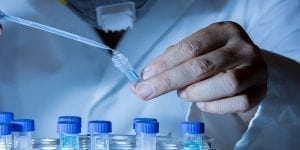Fertility hormone therapy can prove valuable for both men and women struggling to conceive children. For this reason, it is crucial to know about the most important hormones that play a role in reproduction.
Causes of Infertility
Fertility problems could be precipitated by a variety of different conditions in both men and women. Common factors include structural deformities of the reproductive system, various illnesses, participation in potentially detrimental vices like cigarette smoking and excessive alcohol intake and a poor diet.
Hormonal Issues
In numerous instances, however, fertility issues might be initially traced back to significant systemic hormonal imbalances. When people think of reproductive hormones, many focus on commonly known substances like testosterone, estrogen, and progesterone. While these chemicals are vital to the reproductive process, several other substances also play a significant role and, if any one of them is lacking, problems could arise.
Fertility Hormone Therapy
Any or a combination of the preceding conditions could precipitate hormonal imbalances. Fortunately, however, correcting the condition in question or stabilizing hormonal levels might bring about improved fertility levels.
Vital Male Hormones
Various aspects of male reproduction can and often are threatened by imbalances in any one of the following substances:
- Luteinizing Hormone – This substance, commonly abbreviated as LH, plays a crucial role in production of cells responsible for creating testosterone. Individuals stricken with a deficiency of this chemical often experience a decline in testicular function and significant fertility issues.
- Follicle-Stimulating Hormone – Often scientifically abbreviated as FSH, this chemical is paramount to testicular development and sperm production. Elevated systemic concentrations could indicate testicular disease or damage. Diminished levels might suggest that the individual’s sperm production is low.
- Prolactin – Typically, prolactin imbalances manifest in hyper-synthesis, which often indicates a significantly decreased amount of testosterone. This could result in many reproductive and sexual problems.
- Gonadotropin Releasing Hormone – Usually abbreviated simply as GnRH, this chemical fosters the secretion of FSH and LH. A diminished quantity of this substance often inhibits a young male’s ability to experience puberty.
- Testosterone – Widely considered the primary male hormone, testosterone is well-known for driving a man’s sex drive and stimulating the growth of the genitals. Decreased systemic quantities could precipitate low sperm counts, low libido and poor sexual function.
Critical Female Hormones

- Thyroid – Thyroxine, the scientific term for thyroid hormone, has an important function in the production and secretion of several reproductive hormones. Thus, too much or too little systemic concentration of the chemical could precipitate various fertility issues.
- Luteinizing Hormone – LH also plays an important role in helping the ovaries perform optimally.
- Progesterone – This chemical is paramount to fostering the strength of the uterus. An optimally functioning uterus is necessary for fetal development. Thus, women with diminished concentrations might be at risk for developing miscarriages.
- Prolactin – In most instances, women do not experience discernible systemic quantities of this hormone until they become pregnant and after they give birth. However, women with high bodily levels of the chemical when not pregnant or immediately after giving birth may suggest the presence of serious hormonal maladies.
- Anti-Mullerian Hormone – Usually abbreviated to AMH, this chemical helps reproductive organs function properly. Too much of this chemical might indicate underlying reproductive tract illnesses, and too little might inhibit the ability to become pregnant.
- Testosterone – Though considered primarily a male hormone, testosterone strengthens the ovaries in preparation for the egg-production process. Diminished quantities threaten this endeavor. Excessive quantities of the substance can damage the reproductive system and precipitate the development of male characteristics.
- Estrogen – Estrogen plays a significant role in practically every aspect of female reproduction.
Correcting Hormonal Imbalances
In certain cases, hormonal imbalances will not manifest in discernible symptoms. That said, couples experiencing fertility problems are strongly encouraged to consult with their physicians or fertility specialists to receive testing to confirm potential hormonal problems. Many imbalances can be discovered through the administration of simple blood tests. Should an imbalance be found, the primary focus will then shift to identifying and correcting the specific underlying condition. Such efforts might prove effective in remediating fertility struggles.





